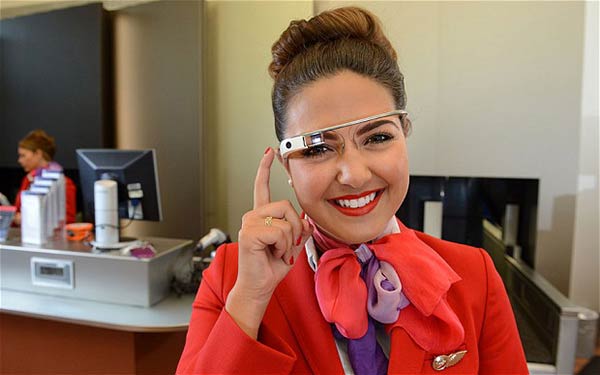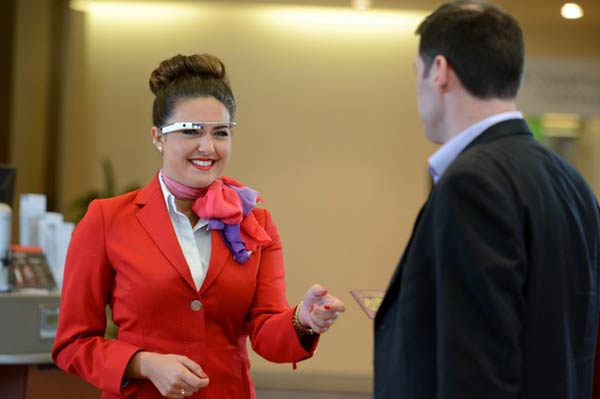A six week pilot scheme has begun where staff of Virgin Atlantic's Upper Class Wing will use wearable technology including Google Glass and Sony's Smartwatch 2 in their customer-facing tasks. The scheme is said to be an industry first and is trailing at London's Heathrow airport.
Concierge staff will be able to improve their efficiency when, for example, they check-in passengers, providing travellers with the latest flight updates and answering queries about destinations - such as local weather and events. The Google Glass wearing staff will also help in translating pertinent information from language to language. If the scheme becomes adopted fully the technology will extend to provide passenger dietary and refreshment preferences in order to enhance customer service further.

Flying isn't as glamorous as it used to be
The high-tech scheme has been introduced after over half of travellers globally, in a Virgin-backed survey, suggested that flying has become a noticeably less glamorous and/or exciting activity than it used to be.
"While it’s fantastic that more people can now fly than ever before, the fact that air travel has become so accessible has led to some of the sheen being lost for many passengers. Our wearable technology pilot with SITA makes us the first in the industry to test how Google Glass and other wearable technology can improve the customer experience. We are upholding Virgin Atlantic’s long tradition of shaking things up and putting innovation at the heart of the flying experience," says Dave Bulman, Director of IT at Virgin Atlantic.

Tech innovation is welcome
Virgin has a history of technological innovation; it became the first airline to allow mobile connectivity and SMS on board back in 2011, and 3G is now available on all 10 of its A330 aircraft whilst 4G is available on all 16 of its Boeing 787s. Another technology being tested by Virgin Atlantic includes the iBeacon. This is a new low-powered Bluetooth transmitter which notifies nearby iOS device owners of updates to their boarding schedules, nearby services and available discounts as they wander around the airport mall.
The benefits of the six-week wearable devices pilot will be evaluated in order to decide on a wider roll-out to other lounges and airports in the future.
Google Glass continues to only be available on the firm's Glass Explorer program, costing around $1,500 a pair - or more if you opt for the new range of prescription frames. It has been demonstrated in various sectors recently, including being used by fire fighters to bring up maps on the ground and surgeons to improve the efficiency of procedures.













